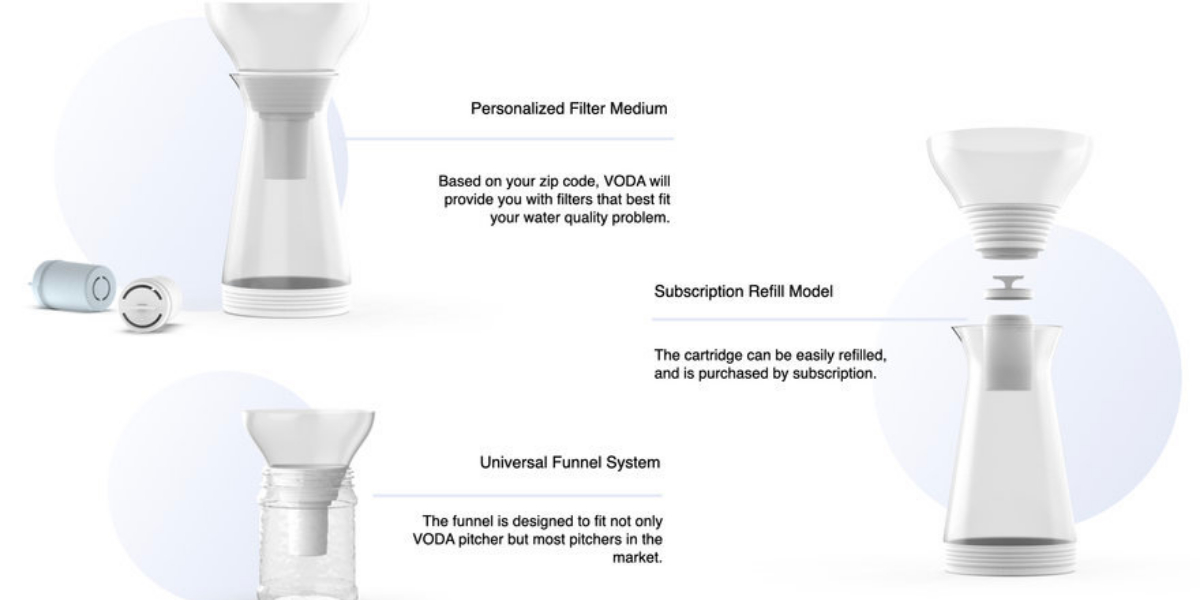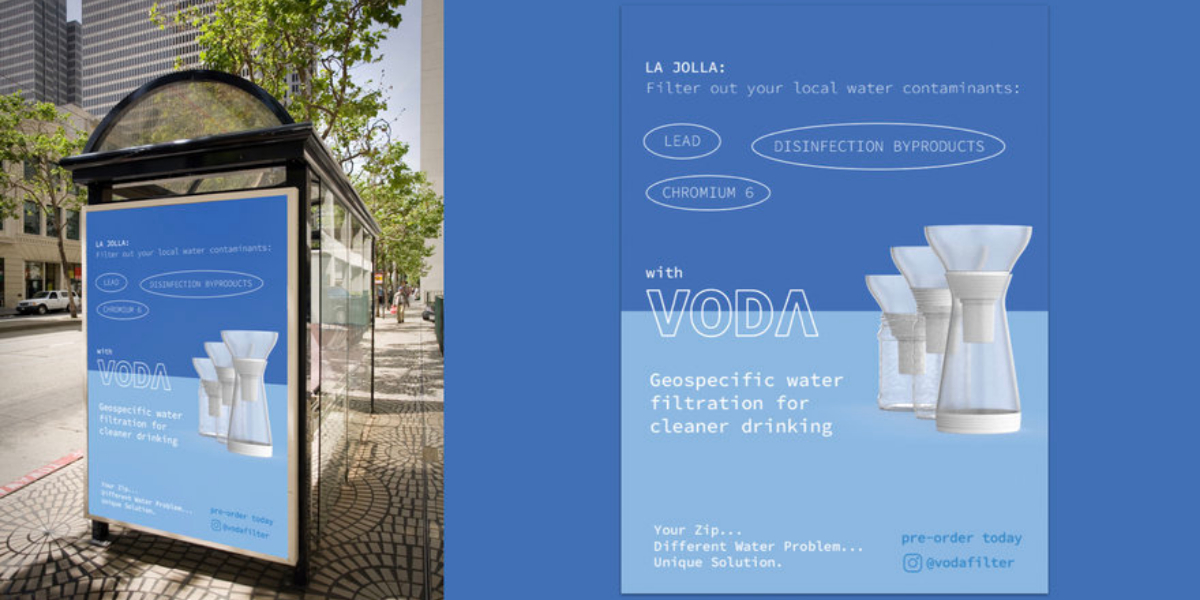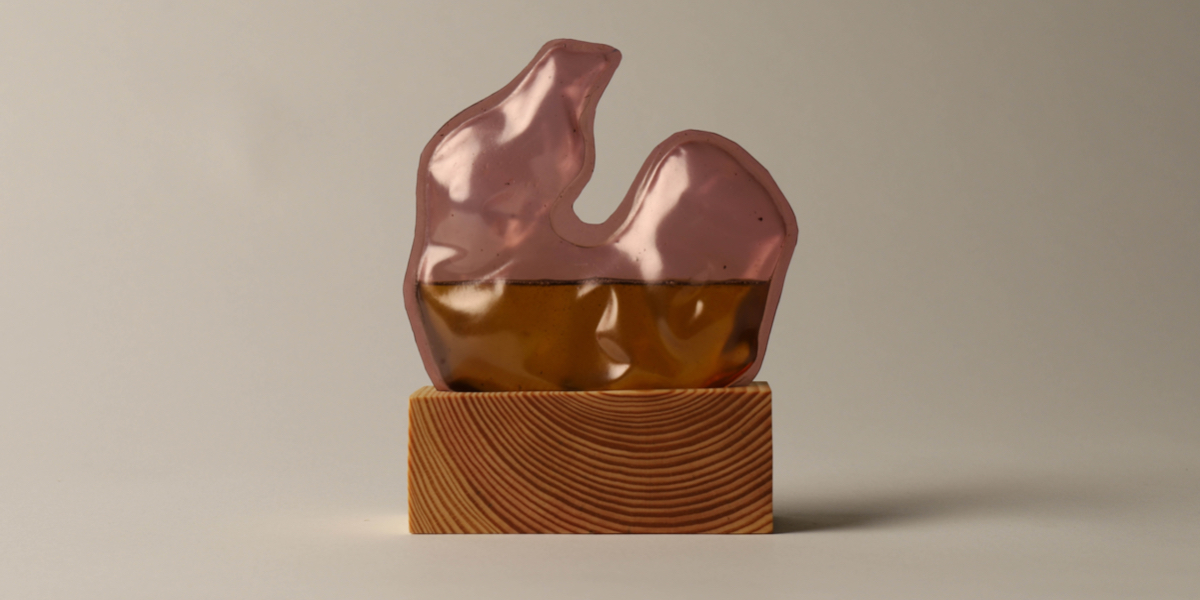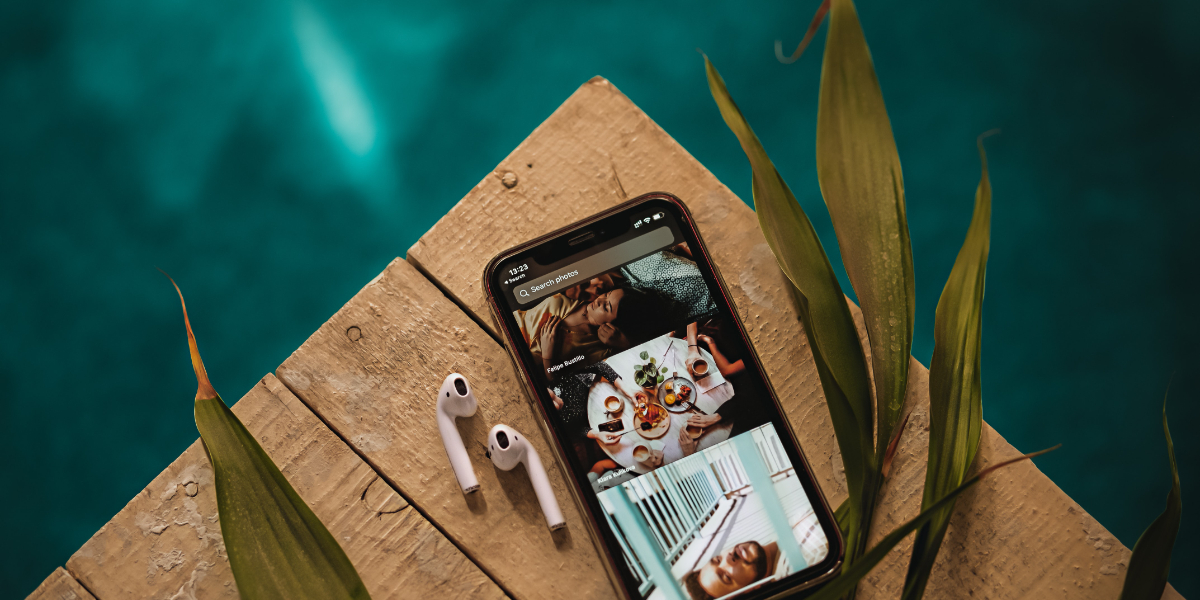AÑO
2023
CATEGORÍA
Hogar
OBJETIVOS
Salud y bienestar, Agua limpia y saneamiento
PAL. CLAVE
water filtration
PAÍS
United States of America
CRÉDITOS
Anne Keating, Margarita Zulueta, Zekun Yang
LINK
https://www.core77.com/posts/116942/This-Eco-Friendly-Personalized-Water-Filter-Knows-Where-You-Live?utm_source=core77&utm_medium=from_title#
VODA
A compostable filter that takes out specific contaminants in any US zip code
How does it work?
SVA Products of Design MFA students Anne Keating, Margarita Zulueta, and Zekun Yang hoped smart design could solve a handful of the problems with water filtration. In a group project, they collaborated to create VODA, a sustainable, personalized filtration system that's compostable and fits in any pitcher. They aimed to take the guesswork out of what to do with local drinking water by sending consumers special filters designed to take out the contaminants specific to their immediate area. For example, someone in La Jolla, California would receive filters designed to remove lead and chromium 6 from their tap, since those contaminants were present in inspections of their local water.
Why is it needed?
Do you know what's in your water? The answer can vary wildly, depending on where you live. Water quality is unfortunately a growing problem across America, and contaminants in the local supply can make a huge, immediate difference in public health. Water supplies across the country feature a wide variety of unseemly contaminants, including lead, uranium, mercury, chlorine byproducts, and more.
Many Americans are aware of this and rely on water filtration systems like Brita to provide them with clean drinking water. However, the one-size-fits-all approach inherent to many popular filtration systems can leave important contaminants out of the equation. Most commercial water filters also rely heavily on plastic, which not only ends up in landfills, but in bodies of water, which just makes the original problem worse.
How does it improve life?
The students wanted to emphasize the importance of "using what you've got," from encouraging awareness of local water issues to halting unnecessary consumption. The VODA team labeled the product as "pitcher-agnostic," since its versatile design can fit in all kinds of containers, like mason jars, or any store-bought pitcher you might already own. While there is a special pitcher designed for the product, the students wanted to reduce waste by creating a design that doesn't rely on any unnecessary parts. The filter's cartridge is also reusable, while the rest can go in compost, making it immediately less wasteful than any filtration system on the market.




